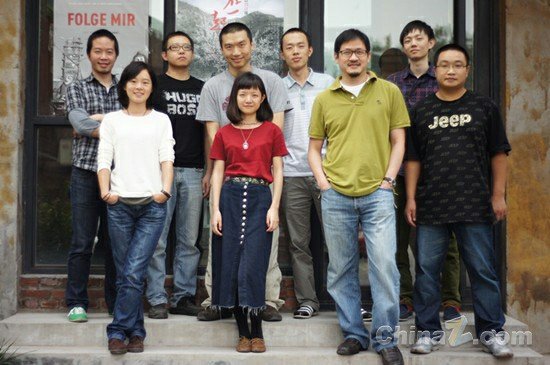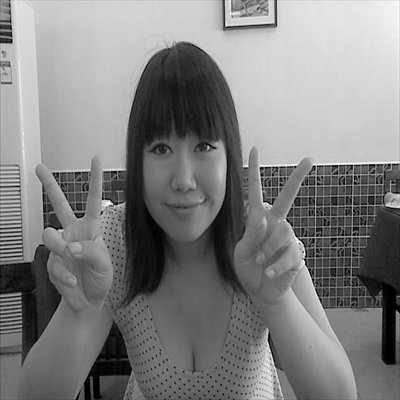Creativity unleashed


When high school student Zhang Xiaoyi designed software that allowed a user to control a Macbook laptop simply by gesturing at it with specially designed gloves, he thought his greatest success would lie only in winning student competitions.
However, in less than two months, 63 strangers had given him over 4,000 yuan($642), allowing him to complete his Gesture@Mac project and send his products to the people who had supported him.
Zhang was one of the first people to create a project on Demohour.com, a funding platform founded in May 2011 in Beijing. Borrowing the concept from the US, crowdfunding platforms such as Demohour in China are helping many people realize their dreams.
Pioneered by websites such as Kickstarter.com in the US in 2009, the idea of crowdfunding is to get everyone to chip in to help someone else finish a project, be it selling a design or shooting an independent film, and in return get something worthy of their investment, such as a finished product or a copy of the film.
Modeled after Kickstarter, Demohour.com is probably the first crowdfunding platform in China.
With a funding goal and a deadline, anyone can create a project on Demohour. If a project fails to reach its goal on time, all the money will be returned. For every successfully funded project, Demohour collects a 10 percent commission.
Simple rules
"Our rules are simple: you need money to finish a project and you can give people something, some physical object, in return," explained He Feng, 34, co-founder of Demohour.
He and his team will verify the applicant's identity and review their past works to decide if their proposed project is feasible. He added that they tend to go with projects that are at least 80 or 90 percent finished.
So far the website has received over 4,000 proposals and launched about 400 projects, raising around 3 million yuan.
Even though anyone can create a project, some rules still apply. Kickstarter, for instance, has a specific set of project guidelines. It is very specific in not allowing funding for charities or causes, or "life projects" such as travel or tuition fees.
Above all, funding platforms celebrate creativity and originality.
There are over 130 projects under the category of design, where independent designers or artists sell their work, such as T-shirts, handmade jewelry and folk-art handicrafts.
A lot depends on the appeal of the applicants themselves and the idea they are selling. He Feng says he sometimes reaches out to people and invites them to start a project on Demohour, especially people who already have a considerable fan base.
The biggest pledge went into a project for a comic book artist fighting cancer. Xiang Yao, 29, who worked under the pen name Xiong Dun, drew her experience with chemotherapy, which she had undergone since 2011, in comics.
He convinced Xiang to sell her comic books at Demohour in order to raise money for her treatment. A friend created the project in March, and within nine hours it had reached its target of 100,000 yuan. By the end of the project on May 20, a total of 4,163 people pledged over 339,480 yuan to the project. (Xiang passed away on Friday.)
However, although it seems like an easy way to get funding, only 45 percent of the projects end up being successful.
Good publicity
Alice Wang, who owns an online store on Taobao selling handmade notebooks, started a project on Demohour in November 17, 2011, selling her handmade postcards, stickers and notebooks.
Her goal was to raise 5,000 yuan within two months. But by the end of that time, the project fell through, raising a total of just 463 yuan from 28 people. Although she was disappointed, Wang said she considered it a form of publicity, and many of the people ended up buying her goods from her Taobao store.
Conducting a postmortem on her failed project, Wang said that timing was a major factor. "It was January, and many people were in a hurry to send out presents, but with the project on demohour, they could only receive the products after the project had succeeded," said Wang.
What's more, there had already been two or three other similar projects before Wang's that were much more successful. Another project that went online in October 2011 that also sold notebooks ended up with over 20,000 yuan.
For Wang, it doesn't matter much where she sells her notebooks, which was essentially what she was doing on Demohour.
However, buying something on Taobao and backing someone's dream on Demohour are not the same thing. "It feels like you are part of a creative process," said Yu Yuanhang, a 22-year-old recent graduate. He has backed 15 projects on Demohour, pledging no more than 200 yuan to each. Yu said he likes projects that result in unique things in return. "I usually give them away as gifts. You can't buy them just anywhere," said Yu.
Need for new ideas
In a way, crowdfunding sites like Demohour are perfect for unique products that are not mass-produced, but have a targeted audience. But in China, the model is not growing nearly as fast as its US counterpart. Dreamore.cn, a funding site founded in September 2011 in Shanghai, has only 500 proposals and successfully helped fund 40 projects, according to its website.
Since April 28, 2009, Kickstarter has launched over 77,000 projects, with over $400 million pledged. These projects have a success rate of around 43 percent, collecting over $350 million. It seems that in the US there is a group of independent designers, musicians or artists with very original ideas, and there is also a consumer group to support them, said He.
One of the most highly funded technology projects on Kickstarter is a 3D printer, which collected close to $3 million. On Demohour, only three out of the 18 technology projects have succeeded so far in raising over 22,000 yuan. "Compared with them, we are only just beginning," said He. "We are looking for great, original ideas."